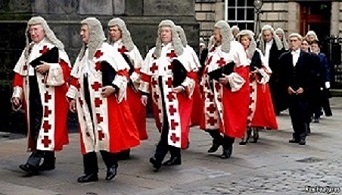3.2 The judiciary
Judges are not primarily concerned with law reform, but they frequently draw attention to anomalies in the law and call for change. Judges can, in fact, reform the law through the medium of interpreting Acts of Parliament and reinterpreting the common law.

Much of the law in common law systems is judge-made. This means that there is an important body of law, doctrines and practices which developed over time, through case law, and which cannot be tied to any statutory text. Much of statute law is also subject to judicial interpretation. However, legislation is enacted by democratically elected representatives of the people; judges are not elected. Judges who make up new law could be thwarting the will of the people or usurping the role of Parliament.
